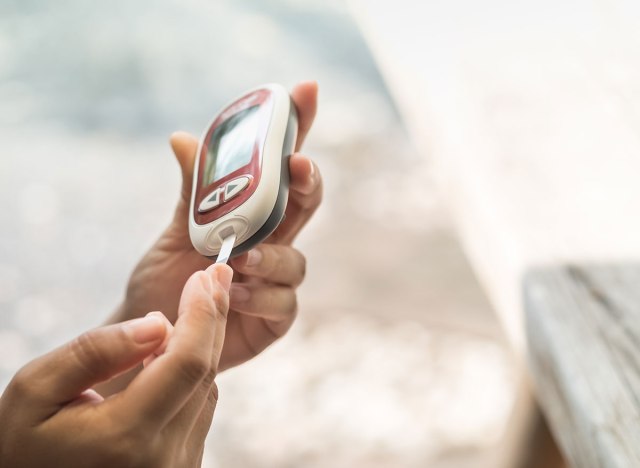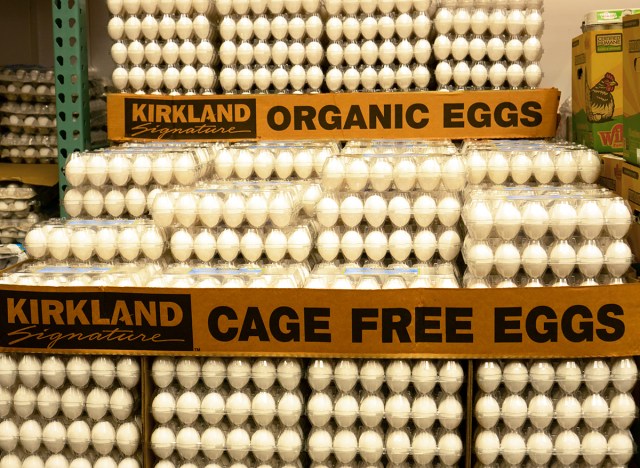Surprising Truths You Need to Know About Eggs, Say Experts
You’ve eaten so many eggs in your lifetime (around 279 a year, on average, according to the American Egg Board), you probably think you know all there is to know about eggs. But do you?
There are some straightforward facts about eggs. For example, “They’re very nutrient-rich in vitamin D, folate, vitamin B2, selenium, iron, vitamins A and E and other nutrients. There are 6 grams of protein in 1 large egg (that’s a lot for just one little egg) and very little saturated fat (1.6 grams per egg). Eggs also help increase HDL, your ‘good cholesterol’ levels,” says Andrea Ovard, RD, a registered dietitian and certified specialist in sports dietetics for IdealFit.
- Advertisement -
But you may have your facts a bit scrambled with everything else. So, let’s toast to your re-eggucation. Read on to learn about surprising truths you should know before cracking your next egg, and for more on how to eat healthy, don’t miss 7 Healthiest Foods to Eat Right Now.
Brown eggs are not necessarily healthier for you.
Brown, white, blue, green—a chicken egg is a chicken egg. “If hens have been fed the same type of ration, their eggs will be nutritionally equivalent, regardless of the shell color,” according to the University of Illinois Extension. The color of the shell is determined by the breed of hen. White egg-laying hens include Ancona chickens, 55 Flowery Hens, Leghorns, Friesian, and Cinnamon Queens, among others. Brown egg layers include Rhode Island Reds, Plymouth Rocks, Chanteclers, Buckeyes, Delaware, Red Stars, among others.
What’s inside the shell is the same, that is unless the hen is fed a special diet of flaxseed. Flaxseed is high in omega-3 fats, the same heart-healthy fatty acids you get from salmon and other oily fish. Eggs from hens fed flaxseed produce what are called “enriched eggs.” Their omega-3 content is typically 125 milligrams (five times the amount in regular eggs) but can be up to 500 milligrams per egg, according to a 2020 study in Food Science & Nutrition. A hen’s diet can also influence the fatty-acid profile of the yolk and the content of micronutrients such as vitamins, trace minerals, and antioxidant carotenoids, according to a review published in Nutrients. In summary, the diet of the chicken is what will influence the nutritional value of the egg—not the color of the shell.
Eating eggs likely won’t raise blood cholesterol levels.

It is true that egg yolks contain lots of cholesterol. So, logically, eating a lot of yolks might raise your cholesterol to unhealthy levels, right? Not necessarily. “Through recent research, we’ve discovered that it’s actually saturated fat, not dietary cholesterol, that increases our blood cholesterol,” says Ovard. When you eat a lot of saturated fats from meat, full-fat dairy, fried foods, and baked goods, your liver produces too much cholesterol, especially the harmful LDL kind.
Several studies have shown that eggs improve LDL, the so-called “bad cholesterol,” by shifting individuals from the LDL pattern B, the more dangerous small and dense LDL cholesterol particles, to pattern A LDL, which is not associated with atherosclerosis.
However, experts still caution that people who are at high risk of cardiovascular diseases, such as those with diabetes or hypertension, should still be cautious with their dietary cholesterol intake, and that includes eggs. When in doubt, consult your medical professional with any questions about your health and diet.
Moderate egg intake may promote heart health.

Worried that the cholesterol and saturated fat in eggs may lead to heart disease? A Chinese study involving a half million people suggests that eating an egg every day may actually help your heart. In the observational study published in the BMJ journal Heart, researchers surveyed participants about their frequency of egg consumption and then analyzed their health over four years looking for links to cardiovascular disease. Only people free of heart disease, type 2 diabetes, and cancer were chosen to participate in the study. The researchers found that people who ate up to 7 eggs a week—one a day—were significantly less like to develop cardiovascular disease than participants who didn’t eat eggs.
Need some new ways to cook those eggs? Here are 71+ Best Health Egg Recipes.
Eating eggs can be safe for diabetics.

One observational study published in Medicine looked for a link between egg eating and the risk of type 2 diabetes. It found no association between higher egg consumption and increased risk. In other research, a randomized controlled trial of 42 overweight people with pre-diabetes or type 2 diabetes found that eating eggs may even improve glucose control. The trial randomly assigned participants to eat one large egg every day or the equivalent of a non-egg-based substitute. After 12 weeks of the intervention, blood tests from participants in the real egg group indicated significant improvements in fasting blood glucose, which marked greater insulin sensitivity and no changes in cholesterol compared to the non-egg eating group.
Check out these 20 reasons eggs could be your secret weight-loss weapon.
Don’t wash eggs when you bring them home from the grocery store.

You shouldn’t wash your eggs before using them, according to the United States Department of Agriculture. Water can make the egg’s shell more porous, allowing bacteria to past through to the inside of the egg. Eggs you buy from a supermarket have already been washed at a temperature that kills salmonella without cooking the egg.
How about farm stand eggs or those you harvest from your backyard chicken coop? Same advice, says the USDA: don’t wash. Jill Winger, founder of The Prairie Homestead concurs: Washing dirty eggs removes the bloom (a micro membrane coating on them designed to protect the inside and keep it clean) and invites bacteria to be drawn inside the egg. “And washing eggs in cool water actually creates a vacuum, pulling unwanted bacteria inside even faster,” she writes.
Adding eggshells to coffee can mellow its flavor.

Not a myth; it really works! The practice supposedly originated with campfire coffee, the so-called “cowboy coffee” made by boiling ground coffee in a kettle of water over a fire. The high heat and constant contact with the water results in a pot full of tannic acid, which leaves the coffee acidic and bitter-tasting, according to Cooks Illustrated. Cowboys used to crush eggshells and dump them into the pot, then strain the liquid through a bandana, leaving grinds and shells behind. The calcium carbonate in the eggshells is alkaline, which absorbs some of the acid in the coffee making it milder in flavor.
Here’s another hack everyone is trying with coffee grounds.
The post Surprising Truths You Need to Know About Eggs, Say Experts appeared first on .
